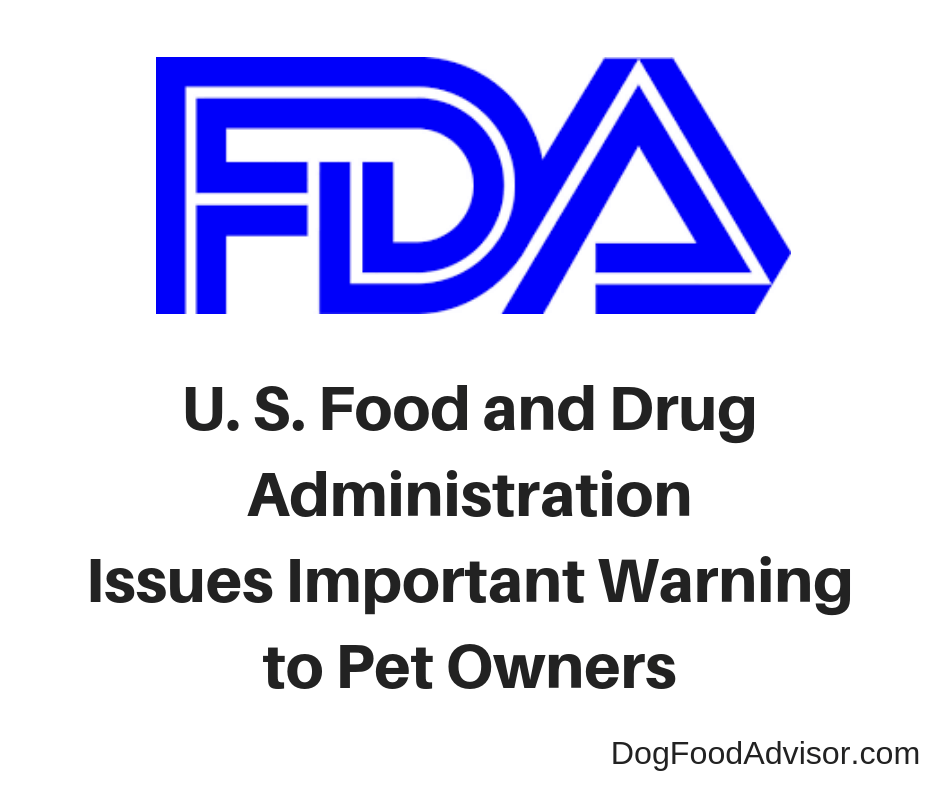August 30, 2019 — The U.S. Food and Drug Administration is warning pet owners not to feed their pets certain lots of Aunt Jeni’s Home Made frozen raw pet food.
That’s because 2 samples collected during an inspection of the company’s product tested positive for Salmonella and/or Listeria monocytogenes.
FDA is issuing this warning since these lots of Aunt Jeni’s Home Made frozen raw pet food represent a serious threat to both human and animal health.
Because the products are sold and stored frozen, FDA is concerned that people may still have them in their possession.
No product images have been provided by the FDA or the company.
Which Products Are Affected?
The affected products include:
- Aunt Jeni’s Home Made Turkey Dinner Dog Food
Package size: 5 pounds (2.3kg)
Lot number: 175199 JUL2020 - Aunt Jeni’s Home Made Chicken Dinner Dog Food
Package size: 5 pounds (2.3kg)
Lot number: 1152013 JUL2020
Aunt Jeni’s Home Made pet foods are sold frozen both online and through various retail locations. Lot codes are printed on the lower right corner of the front of each bag.
This appears is not a recall. You can read the company’s response here.
About Salmonella
Salmonella is a bacterium that can cause illness and death in humans and animals, especially those who are very young, very old, or have weak immune systems.
According to CDC, people infected with Salmonella can develop diarrhea, fever and abdominal cramps.
Most people recover without treatment. However, in some people, the diarrhea may be so severe that they need to be hospitalized.
In some patients, the Salmonella infection may spread from the intestines to the blood stream and then to other body sites unless the person is treated promptly with antibiotics.
Consult your health care provider if you have symptoms of Salmonella infection.
Pets do not always display symptoms when infected with Salmonella.
However, signs can include vomiting, diarrhea (which may be bloody), fever, loss of appetite and/or decreased activity level.
If your pet has these symptoms, consult a veterinarian promptly.
You should also be aware that infected pets can shed the bacteria in their feces and saliva without showing signs of being sick, further contaminating the household environment.
About Listeria
Like Salmonella, Listeria monocytogenes is another bacterium that can cause illness and death in humans and animals, especially those who are pregnant, very young, very old, or have weak immune systems.
According to CDC, listeriosis in humans can cause a variety of symptoms, depending on the person and the part of the body affected.
Symptoms can include headache, stiff neck, confusion, loss of balance, and convulsions in addition to fever and muscle aches.
Pregnant women typically experience only fever and other flu-like symptoms, such as fatigue and muscle aches.
However, infections during pregnancy can lead to miscarriage, stillbirth, premature delivery, or life-threatening infection of the newborn.
Pregnant women and their newborns, adults age 65 and older, and people with weakened immune systems are more likely to get sick with listeriosis.
Anyone with symptoms of listeriosis should contact a health care provider.
Listeria infections are uncommon in pets. However, they are still possible.
Symptoms may include mild to severe diarrhea, anorexia, fever, nervous, muscular and respiratory signs, abortion, depression, shock and death.
Pets do not need to display symptoms to be able to pass Listeria on to their human companions.
As with Salmonella, infected pets can shed Listeria in their feces and saliva without showing signs of being sick, further contaminating the household environment.
What to Do?
If you have any of the affected product, stop feeding it to your pets and throw it away in a secure container where other animals, including wildlife, cannot access it.
Consumers who have had this product in their homes should clean refrigerators and freezers where the product was stored.
Clean and disinfect all bowls, utensils, food prep surfaces, pet bedding, toys, floors, and any other surfaces that the food or pet may have had contact with.
Because animals can shed the bacteria in the feces when they have bowel movements, it’s important to clean up the animal’s feces in yards or parks where people or other animals may become exposed.
Consumers should thoroughly wash their hands after handling the affected product or cleaning up potentially contaminated items and surfaces.
U.S. citizens can report complaints about FDA-regulated pet food products by calling the consumer complaint coordinator in your area.
Or go to https://www.fda.gov/petfoodcomplaints.
Canadians can report any health or safety incidents related to the use of this product by filling out the Consumer Product Incident Report Form.
Get Dog Food Recall Alerts by Email
Get free dog food recall alerts sent to you by email. Subscribe to The Dog Food Advisor’s emergency recall notification system.
Recalls & Warnings
See all recalls| Date | Brand/Store, Issue type & Product | Issue type | Product |
|---|---|---|---|
| 12.03.2025 |
Fromm
Fromm Family Foods Recalls Bonnihill BeefiBowls Dog Food
RECALL
|
RECALL | Fromm Family Foods Recalls Bonnihill BeefiBowls Dog Food |
| 10.10.2025 |
Raw Bistro
Raw Bistro Pet Fare Dog Food Recalled Due to Possible Salmonella Contamination
RECALL
|
RECALL | Raw Bistro Pet Fare Dog Food Recalled Due to Possible Salmonella Contamination |
| 10.09.2025 |
Foodynamics
Foodynamics Recalls Raw Dog Barkery, BellePepper Cats, and Kanu Pets Freeze-Dried Pet Treats
RECALL
|
RECALL | Foodynamics Recalls Raw Dog Barkery, BellePepper Cats, and Kanu Pets Freeze-Dried Pet Treats |
| 10.07.2025 |
Buy Bones, Inc. Recalls Nature’s Own Pet Chews Bully Bites Because of Salmonella Contamination
RECALL
|
RECALL | Buy Bones, Inc. Recalls Nature’s Own Pet Chews Bully Bites Because of Salmonella Contamination |


